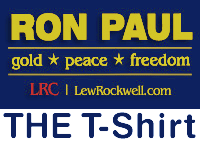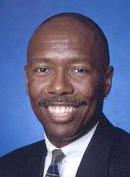Recently by Wilton D. Alston: How Can Anyone Not Realize the War on (Some) Drugs Is Racist?
"Some fees are understandable, but the airlines have gone too far." ~ Zach Bennett, in USA Today
Sometimes it doesn't pay to read the paper. On a recent business trip I had some time to kill, so I filled it with one of my guilty pleasures – reading the copy of USA Today that was left outside my hotel room. As is my habit, I read the Sports section first. (Yes, I'm one of those guys.) I followed that vital bit of information gathering by reading the Life section. (Finding out which recent movies are "hot or not" tends to complete my day.) Finally, I settled in to absorb the certain-to-be Austrian-inspired insights in the Money section. The cover story was about the ostensibly outrageous fees airlines are beginning to charge for, well, everything.
As an aside, I'm sure the reader has seen the catchy commercials from Southwest Airlines, touting their "Bags Fly Free" slogan. Funny stuff. And, from the standpoint of business and economics, absolutely fair game. Southwest seeks to differentiate itself from other airlines by pointing out a particular sore point with travelers – having to pay for checked baggage. The USA Today piece highlighted the results of a recent survey – conduced by USA Today – on the same subject. The article noted that some airlines were charging as much as $450 for a checked bag. (This particular charge is for a bag over 70 pounds, flying on an Asian flight.) Seventy pounds? Really? Do people actually leave home with bags that heavy and want to have them fly for "free"?
The article also made the point that what the airlines were really doing was "unbundling" baggage fees from ticket fees. In other words, where all passengers previously paid a portion of the baggage handling fees for those who checked bags, the current paradigm is to charge only the folks who actually check bags, i.e., lots of bags or one really heavy bag equals lots of fees, or at least one really big fee. Sounds pretty simple, right? The question I had as I read the USA Today article, particularly as I read the quotes from both travelers and supposed experts was this: Is it unfair for an airline to unbundle ticket fees? Further, if they do unbundle them, is it unfair to charge passengers ostensibly exorbitant prices for, well, exorbitant packing? No, it is not. One might argue that since I never check a bag – a practice I began after several lost-in-space baggage episodes – my opinion is a little skewed, but I'd beg to differ.
Several of the people cited in the USA Today piece used words like "gouging" when they described the current (higher) fees for checked bags generally, and over-weight bags specifically. From the standpoint of Austrian economics, if the transaction is voluntary, the characterization of that transaction as gouging or unfair is misplaced. No one is forcing anyone to fly. No one is forcing anyone to fly a particular airline. No one is forcing anyone to pack in a particular manner. The airlines are simply charging customers for the specific service of which the customer takes advantage. More importantly, a rise in market prices for a scarce resource tends to drive additional entrepreneurs into the market, which leads to more choices in that market, all good things. [Well, except for the fact that the airline industry is so overregulated that it is very difficult for a new entrepreneur to enter this particular market.]
Consider the case of generators at the scene of a natural disaster. If prices for existing generators are allowed to rise to a price point that is market-driven, i.e., the market clearing price, given their scarcity (supply) and their necessity (demand), two outcomes – both beneficial – will result. One, not every generator will be bought, scooped up at a bargain price by anyone passing the store. Two, more generators will arrive, should all the local generators be sold. (If you were in the business of generator sales and you could sell generators at a profit, even after shipping them in from many miles away, wouldn't you do it?) However, should those prices be artificially held low, in a misguided attempt to protect the consumer, two other outcomes will result.
One, all generators will sell out. Two, no more will show up to replace them. The very condition the well-meaning, but economically-ignorant, protectors sought to preclude will take place – there will be people who need generators (and who could pay for them) who will not get them. This is the problem with anti-price gouging laws. What does all this have to do with ticket fees being unbundled from baggage check fees? Quite a bit.
 One of the undercurrents in the USA Today piece was that of "unfair profits." The thought was (and is) that the airlines are raking in a ton of cash by charging bag fees, and those profits are somehow too high. The article also mentioned that the Transportation Department – in response to complaints – had imposed a rule requiring airlines to list fees for optional services. I don't know about you, but I can sense where this is going.
One of the undercurrents in the USA Today piece was that of "unfair profits." The thought was (and is) that the airlines are raking in a ton of cash by charging bag fees, and those profits are somehow too high. The article also mentioned that the Transportation Department – in response to complaints – had imposed a rule requiring airlines to list fees for optional services. I don't know about you, but I can sense where this is going.
At some point, there will be calls to put a ceiling on the amount an airline can charge for these optional services. (If you're wondering how in the hell the fee for an optional service can simultaneously be unfair, you're not alone.) As already noted, what airlines are doing when they unbundle baggage fees from ticket prices is charge the exact person who should be paying the amount of money his transaction requires. Further, they are no longer charging me for some other dope's decision to bring too many clothes on a 3-day trip to his sister's house. Call me a greedy capitalist, but I like that.
Conclusion
What the airlines are also doing when they charge a substantial fee for a substantial bag is penalize people for bringing them. Should I, a rather frequent air traveler who never checks a bag, be required to finance the baggage checking privileges of other travelers? Should not the person who receives the service make the payment? Like hotdogs at a baseball game, those who consume them leave home knowing they will cost much more than they otherwise would. Furthermore, their purchase is optional. Both these qualities render any suggestion that the price is unfair ridiculous. The same must be true of a person who attempts to bring one of those old-time steamer trunks to the airport, planning on shipping it at no additional charge.
 For the record, let me hasten to add: I too can be (and have been) miffed at prices charged in the airport, or my local minor league baseball park. Even when one understands the economics, he can be disappointed by the outcome. My fear, however, is not that people will continue to be ignorant of basic economics, or that I'll be faced with the decision to buy a $10 tube of mystery meat at the next baseball game I attend. My fear is that all the whining about unfairness, particularly in the air travel market – where there is already far too much government involvement – will lead to even more meddling by well-intended and economically-ignorant bureaucrats. If there is one thing upon which I hope we can agree it is this: We don't need more government rules at the airport. When you whine about baggage fees to the government – the terrorists win.
For the record, let me hasten to add: I too can be (and have been) miffed at prices charged in the airport, or my local minor league baseball park. Even when one understands the economics, he can be disappointed by the outcome. My fear, however, is not that people will continue to be ignorant of basic economics, or that I'll be faced with the decision to buy a $10 tube of mystery meat at the next baseball game I attend. My fear is that all the whining about unfairness, particularly in the air travel market – where there is already far too much government involvement – will lead to even more meddling by well-intended and economically-ignorant bureaucrats. If there is one thing upon which I hope we can agree it is this: We don't need more government rules at the airport. When you whine about baggage fees to the government – the terrorists win.




